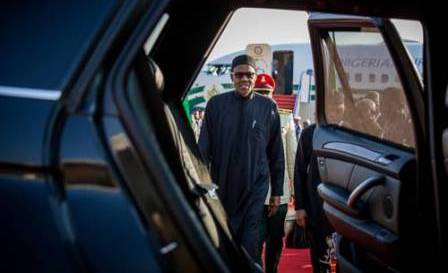ROTIMI ASHER
Year 2020 was riddled by Corona Virus pandemic. The nation’s auto industry was badly bashed. As the world, chorused: “Happy New Year”, the industry limped into the 2021 facing a bleak future.
Of course, it recorded a couple of gains. Stallion Group significantly launched Hyundai Kona, the nation’s first Electric Vehicle to be locally assembled.
NORD Automobiles opened an assembly plant for range of vehicles, including buses, SUV and sedan.
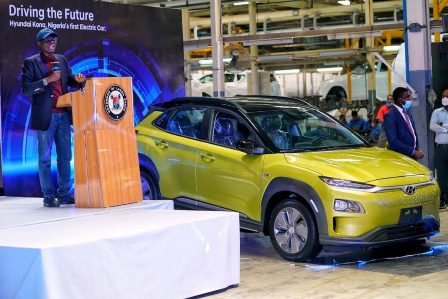
PAN Nigeria limited assets were finally acquired by NESBITH INVESTMENT with a commitment of over $50 m.
Mikano opened a multi-product assembly plant for Geely passenger cars, Dongfeng pickups, Kama and CAMC Commercial vehicles.
Towards the end of the year, Coscharis launched its Renault vehicle line at its multiproduct plant in Lagos.
Unfortunately, 2020 departed leaving the virus behind. The nation’s auto industry came out of the year with pains and hopelessness.
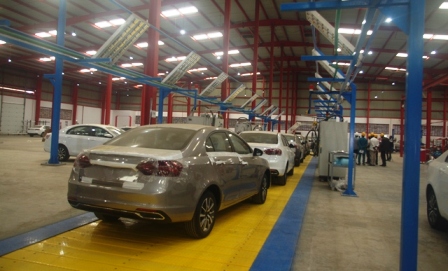
From the first quarter of 2020, Corona Virus led to compulsory lockdown. As a result, most international businesses across the world, Nigeria inclusive, experienced challenges in shipping their goods and services.
Nigeria’s auto Assemblers found it difficult to import SKD Kits for their plants, Fully Built up Vehicles (FBU) and other auto auxiliary parts from their OEMS.
Auto Maintenance: With over 11 million registered cars on the roads, many Nigeria’s auto marketers experienced difficulties in meeting their obligation to customers. There was no constant supply of spare parts and other car accessories.
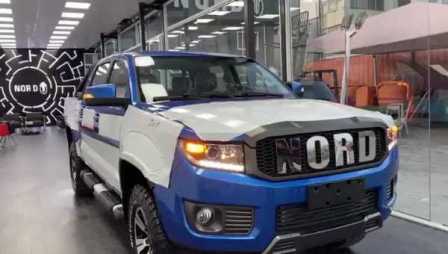
The country experienced spare parts price hike. So it was tough to fix damaged cars. Mechanics were not left out, as most middle class among them could not restock their workshops.
Auto Marketing, Sales and Media: Due to diminution in manufacturing capacity, shipping companies had fewer vehicles and spare parts to ship to Nigeria. In order to recover their losses, they had to increase the shipping fees of vehicles and components, a situation which affected the nation’s auto companies, as many could no longer break even.
The resultant effect was a drastic reduction in car launches. Some adopted virtual launch and marketing. Activities in the sector dwindled. This also had a negative impact on auto journalism, because there were fewer events to report. Motoring media recorded huge revenue losses. Being part of the value chain, depression of the industry meant loss of advertisement patronage/revenue from automotive and allied companies.
The Nigerian Car Market Report: After slightly recovering in August (+2.9%), the Nigerian car market dropped again in September 2020, indicating instability in the short term. Indeed, 755 units were sold in September (–5.5%), leaving the year total sales at less than 7000 units, a 41.6% decrease compared to the previous year.
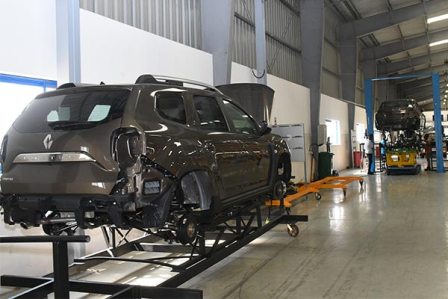
The worst setback in 2020 was the suspension of the National Automotive Industry Development Plan introduced in 2013 by the administration of former President Goodluck Jonathan. While the stakeholders were expecting the Federal Government to finetune the policy to meet their yearning,it was suspension they received in return.
The Minister of Industry, Trade and Investment, while announcing the suspension said, ‘’ the government was already planning to send a fresh auto policy bill to the National Assembly that would contain the inputs and views of auto stakeholders, private sector operators and interests of Nigerians in a bid to achieve inclusive industrialization growth in vehicles manufacturing in Nigeria. It is over five months now, a new auto policy bill has not seen the light of the day.
Since the suspension, importers had clamored for reduction on import duties on vehicles, a bad news for local auto assemblers.
Speaking on the development, the Chairman of Progressive Car Dealers Association, Chinedu Ukatu, wonders why importers should still be paying the 70 percent tariff on imported vehicles after the announcement of the suspension of the policy.
He said: “The government said they have suspended the policy but when you go through the port to clear your vehicles, you still pay 70 percent and nobody is telling us why a policy has been suspended. We have tried to get clarification even from Customs and the Ministry. But it appears government is confused somewhere.”
Assessing the auto industry’s performance in 2020, the former Director of Policy, NADDC and Chairman, Resident Automotive Components Dealers Association of Nigeria (RACDAN), Luqman Mamudu said: ‘’the Nigeria automotive industry continued to grow in Installed capacity to about 500,000 automobiles per annum as new Assemblers were licensed and commenced operation during the period.’’
He however lamented the continuous growth of used Vehicle imports and undermining of local industry, as the Nigerian Automotive Industry Development Plan (NAIDP) policy provision to levy used vehicle imports has not been activated.

“Its activation,” he explained, “is dependent on the launch of cheap vehicle acquisition scheme by the National Automotive design and development Council (NADDC), which is yet to realize this critical component of the policy.
“Equally devastating for the industry remained the extremely unfriendly administrative bureaucracy at NADDC, FMF, and the Nigeria Customs offices.
“With the disruption of supply chain globally due to the covid19 pandemic, it is almost a miracle that the industry capacity utilization has remained steady at about 10%.”
According to Luqman, while the bill to engender confidence for Investors in Nigeria’s automotive industry (NAIDP) was denied assent by the Presidency, inability of the Federal Ministry of Industries, Trade and investment (FMITI) to resubmit same to the National assembly about five months after has “caused serious disincentive to all the pipeline investment projects.’’
The worst set back suffered by the nation’s auto industry during the year under review is what Mamudu who is also the Managing Partner, Transtech Industrial Consulting, described as the malicious memorandum originating from Nigeria Customs services which was approved by Federal Executive Council in the presence of the Minister of Industry.
He said:“I still find it difficult to understand why he (Otunba Niyi Adebayo, FMITI) will seat at a meeting where the flagship policy of his ministry is thrown out of the window. The provision of this memorandum is to remove all the protective tariff for local assemblers such that subsidy provided by most vehicle exporting nations to Nigeria easily overrides.’’
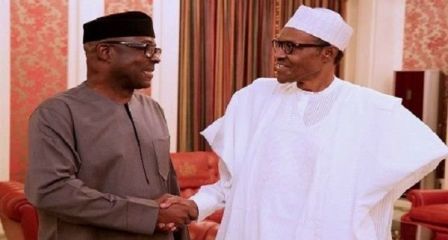
‘’For instance,” he stressed, “a particular country has 17% subsidy for all truck export but the new memorandum crashed this to 5% tariff for Nigeria. Unfortunately many OEMs from this country already have assembly operations in Nigeria. It definitely doesn’t make sense to sustain assembly in Nigeria. If this new measures are implemented, Nigeria can forget about automotive industry ever. We would just continue to import. This indeed will be very sad; especially for those of us that spent practically our lives to build it.’’
The government had already yielded to pressure by signing the finance bill into law a day before the New Year. One of the contents of the finance bill is the reduction of import tariff on imported vehicles. It appears the country is back to the old days of dumping ground for new and used vehicles popularly called ‘Tokunbo’. That also means the nation’s locally assembled automobiles are in for stiffer competition from FBU New Vehicles from Europe, America and China.
With the new law, like Mamudu said, it will be difficult to sustain auto assembly in Nigeria.
Until President Buhari’s administration hopefully jettisons the anti-auto industry development decision, the future of Nigeria’s auto industry would remain desolate.
©Copyright MOTORING WORLD INTERNATIONAL.
All rights reserved. Materials, photographs, illustrations and other digital content on this website, may not be reproduced, published, broadcast, rewritten or redistributed in whole or in part without prior written permission from Motoring World International
Contact: editor@motoringworldng.com



